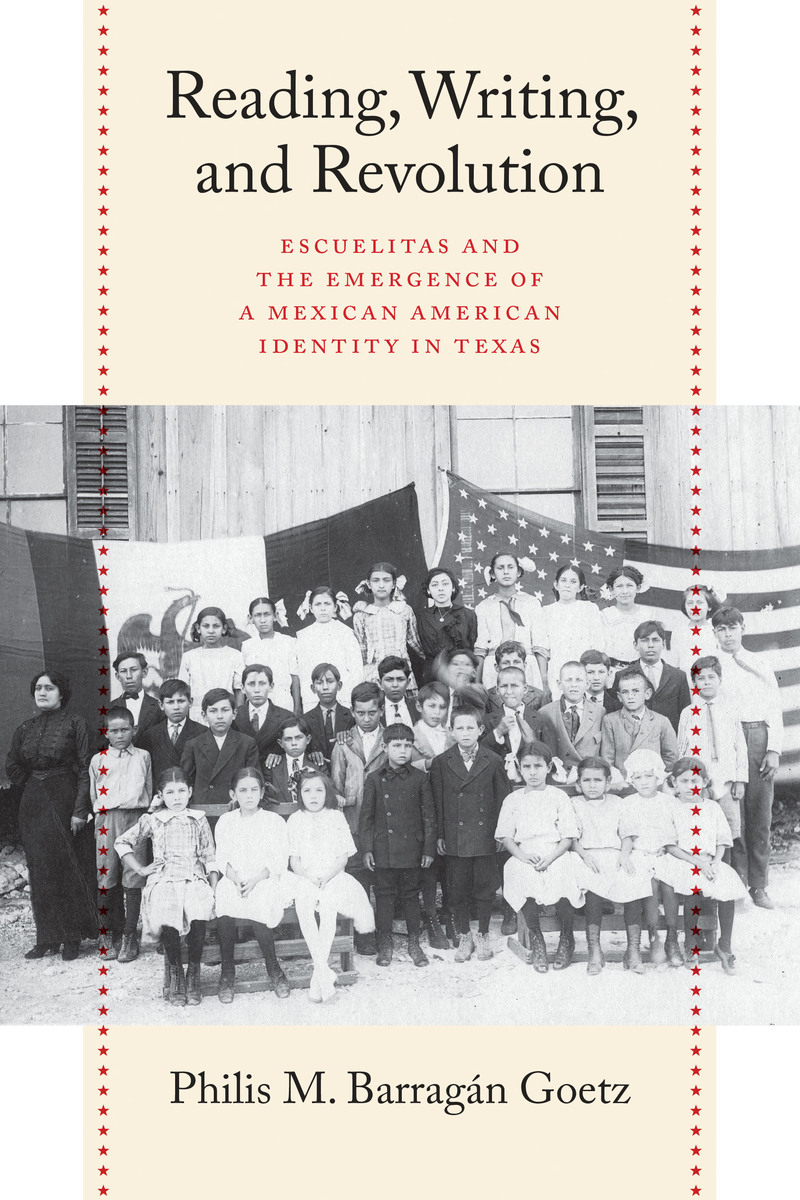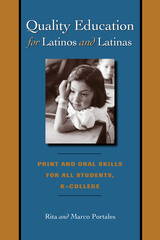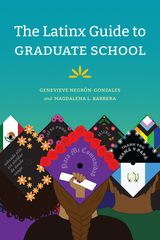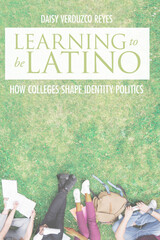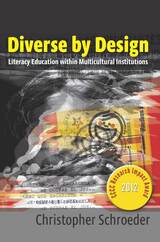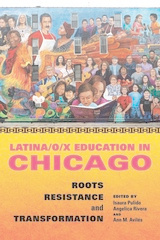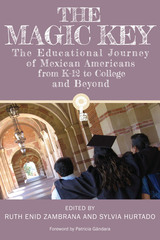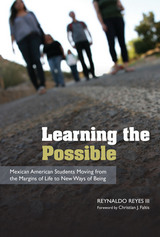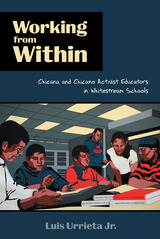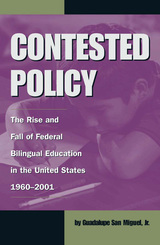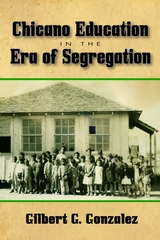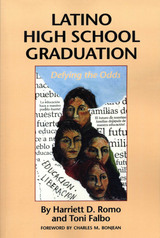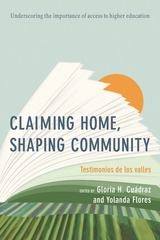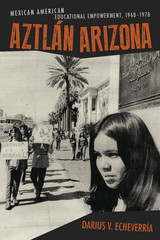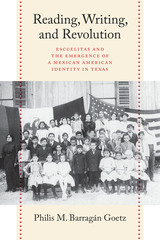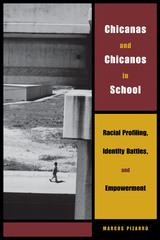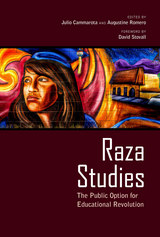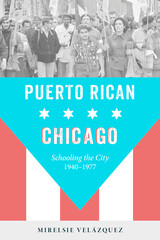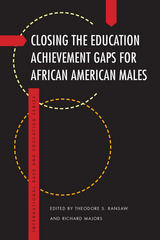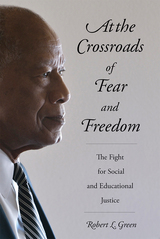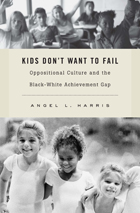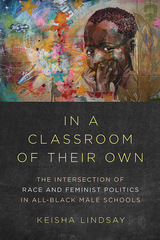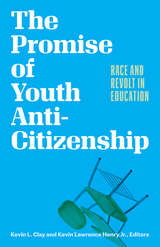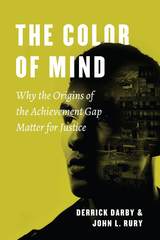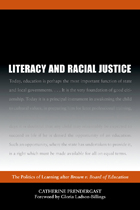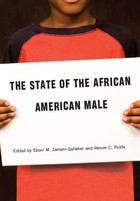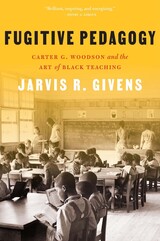Reading, Writing, and Revolution is not merely a book about educational history; it is a trailblazing study on how Mexican Americans have relied on any tools available to create a more inclusive educational system for themselves and their community.
— New Books in Latino Studies
A fascinating history...Barragán Goetz does an excellent job of documenting the existence of escuelitas in the context of public school development, Mexican nation-building pressures, and Mexican-origin community developments...this book is a major contribution to the historiography of Mexican American education in the United States and lays the groundwork for additional work on the origins and development of community-based schooling in Chicanx history.
— Southwestern Historical Quarterly
[Reading, Writing, and Revolution] is groundbreaking...a must-read for those interested in education history, Mexican American history, borderlands history, and the history of civil rights activism...like Jovita González, who as an educator worked endlessly to teach the correct history of ethnic Mexicans in the United States, Barragán Goetz, has provided an essential piece of work also determined to set the record straight, that is, that Mexicans and Mexican Americans were not apathetic toward education but rather were resolute to furnish one that was free from Anglo segregation and other forms of discrimination.
— History of Education Quarterly
Reading, Writing, and Revolution provides ample evidence of how creating an inclusive history for Mexican-origin children in the state of Texas has always been a struggle...Barragán Goetz reminds us of the centrality of women’s work in education and their long-lasting impact on the history of Texas. Educators preparing to teach Mexican American history throughout the state, as well as parents wanting their children to learn this more inclusive history can better appreciate these efforts by looking at the escuelita model. They and anyone interested in the complexities and far-reaching legacies of the history of education have much to learn from Reading, Writing, and Revolution.
— Journal of Arizona History
Barragán Goetz has provided a significant intervention in the robust and well-respected field of Mexican American educational history in Texas...Written in an engaging manner and meticulously researched, this book will become a foundational text for those hoping to understand Mexican American schooling in Texas.
— Journal of the History of Childhood and Youth
A well-organized and well-supported body of work about South Texas' escualitas...[Reading, Writing, and Revolution] is a much needed conversation about resistance, self-determination, gender, and power in a time when the denial and erasure of history resonates today. Barragán Goetz’ attention to the collected narratives, and skillful presentation of ideas is tribute to the memory of a people – especially Mexican and Mexican American women – whose work benefitted future generations.
— Journal of Latinos and Education
Reading, Writing, and Revolution is the freshest, most innovative scholarship in Chicana/o history to appear in some time. Until now, the history of escuelitas has remained elusive and not extensively documented. Through the creative use of untapped, stellar primary documents and oral histories combined with a tremendous ingenuity of interpretation, Philis Barragán Goetz reconstructs both the local history and the international roots of the escuelitas of Texas. In doing so, she sheds new light upon the whole of the field.
— Carlos Kevin Blanton, Texas A&M University, author of George I. Sánchez: The Long Fight for Mexican American Integration
Reading, Writing, and Revolution situates escuelitas (little schools) as alternative spaces that disrupted the Anglicizing hegemonic institutions of US schools. Mexican Americans revered education and offered racial uplift in these schools, which were based on ethnic self-determination during an era of racial exclusion and segregation. Barragán Goetz recasts Mexican American women as, simultaneously, teachers and revolutionary leaders confronting patriarchy. Merging US and Mexican history, this detailed, well-researched work is the first major study of escuelitas as tools of Mexican American empowerment in the Southwest.
— Cynthia E. Orozco, Eastern New Mexico University, Ruidoso, author of Agent of Change: Adela Sloss-Vento, Mexican American Civil Rights Activist and Texas Feminist
Reading, Writing, and Revolution makes a major contribution to our understanding of the origins and political development of escuelitas in Texas—their founders, teachers, and curriculum. This engaging historical narrative reveals, with incredible detail and nuance, evidence of the Mexican community’s long-standing efforts for self-determination and their struggles to provide their children with the best education possible, on their own terms.
— David G. García, University of California, Los Angeles, author of Strategies of Segregation: Race, Residence and the Struggle for Educational Equality
"Barragán Goetz traces an important and complex trajectory of escuelita history in Reading, Writing, and Revolution, making this book an essential read for those interested in Mexican American educational history....Barragán Goetz corrects a century of history in this book, in showing that Mexican and Mexican American communities have always valued education and have taken on the necessary actions in sustaining the learning experiences of children."
— Pacific Historical Review
Barragán Goetz's definitive book bridges a major gap in Chicano educational history...Based on excellent and thorough research, Barragán Goetz's book provides a sweeping, innovative, and pathbreaking history of the escuelitas in south Texas.
— Journal of American History
Barragán Goetz presents refreshing historical insights into how Mexican communities organized efforts to create and build institutions focused on the educational well-being of children and youth...Barragán Goetz makes critical contributions to scholarship on Chicana/o educational history, educational history for communities of color, and ethnic studies...Reading, Writing, and Revolution will appeal to scholars of social movements, educational history, and ethnic studies. Barragán Goetz’s work adds to a growing body of scholarship about the work of Mexican educators and families who collaborated to create new possibilities for all students, including those in succeeding generations.
— Aztlán: A Journal of Chicano Studies
